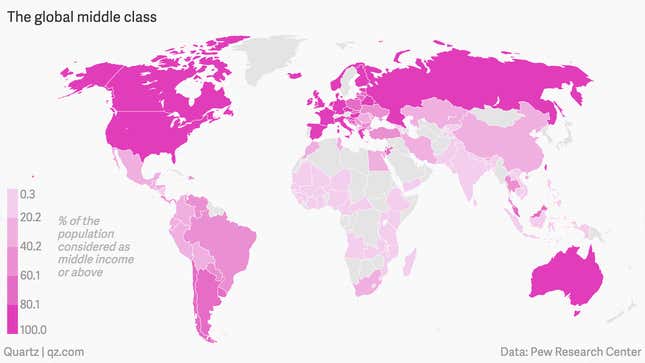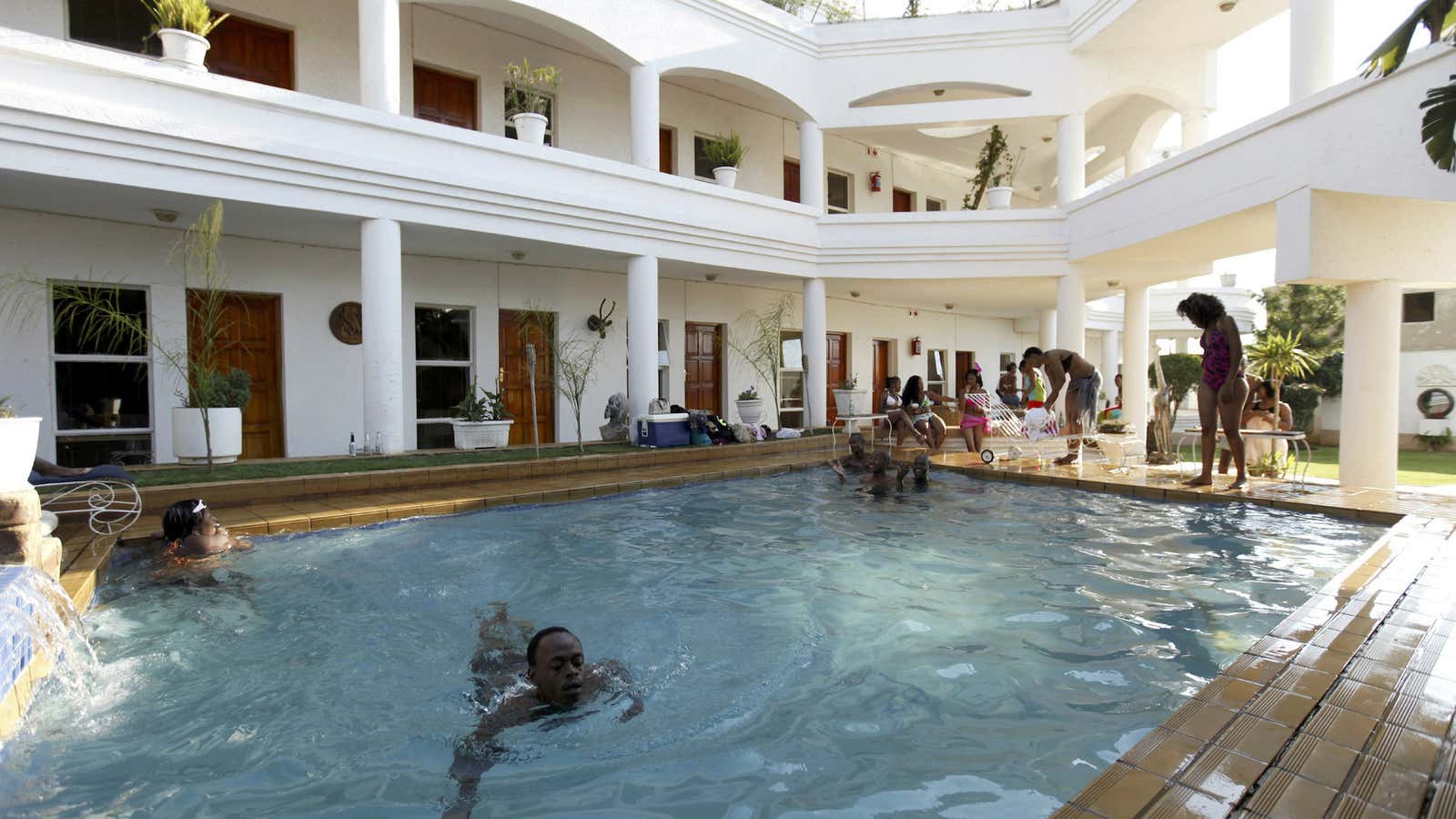Africa’s middle class may not be as big as economists have led us to beleive. According to a recent report by Credit Suisse that considers broad measures of wealth, rather than just income alone, only 3.3% of Africans should be considered middle class, or about 19 million people. That’s a far cry from previous estimates from the African Development Bank, based on income, that put the figure closer to 300 million (pdf) in 2011.
The lure of Africa’s growing middle class has attracted hopeful investors and multinationals from Nestlé to Coca-Cola, both of which have recently scaled down their operations.
Credit Suisse’s researchers set the equivalent of $50,000 in the US as the threshold for a person’s wealth to classify them as middle class. That translates to about $22,000 in South Africa, where almost a quarter of the continent’s middle class live. Nigeria, the continent’s largest economy, is home to 922,000 middle-class adults.
The argument for looking at wealth instead of income is based on the idea that wages alone do not measure a household’s financial security and resilience to shocks like losing a job. Earlier this year, a study by the Pew Research Center also found that the global middle class is likely smaller and poorer than previously believed, with many families on the cusp of slipping back into poverty. Pew estimates that just 6% of Africans earn between $10-$20 a day, thus qualifying as middle class.
It is puzzling that Africa’s middle class remains small when wealth on the continent has grown quickly, more than doubling over the past 15 years to some $1.63 trillion. One reason is that Africa’s growth has not been distributed evenly—the continent’s richest, 0.2% of the population, control over 30% of the region’s wealth.

